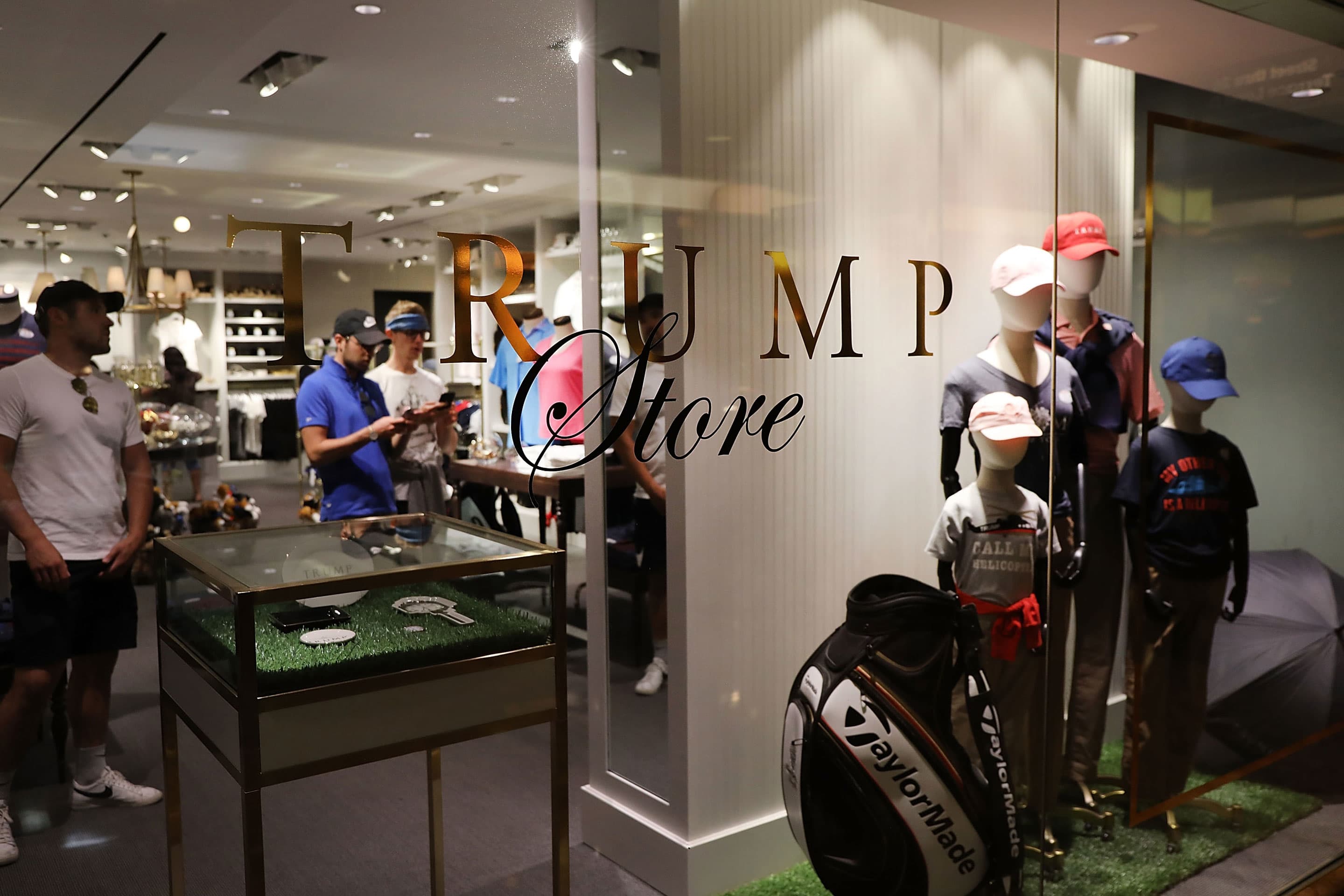President Donald Trump has made close to $1.5 million in income over the past three years from an online retail store that is owned by the company he founded, according to financial disclosure records reviewed by CNBC.
While dozens of the Trump-branded products sold by the store are listed as having been made in the United States, a sizable chunk are made in foreign countries or are from an unknown origin — which would appear to run contrary to the president’s “Buy American” agenda.
As of Friday, there are currently over 100 products under the “Made in America” collection on the online Trump Store, where they are marked as either “Made in America” or “Made in the USA,” according to a CNBC review. Yet, at least another 180 items that CNBC reviewed are labeled as having been made in Scotland, France or Italy, are labeled as “Decorated in the USA” or have no country of origin listed at all.
That means a little more than a third of the items in the online Trump Store are described as officially made in the United States. There is also an in-person Trump Store located in New York’s Trump Tower.
The Trump Organization online subsidiary is titled on the disclosure reports as T Retail LLC. USA Today first spotted the discrepancy and noted that the president made more than $107,000 off that business when it launched in 2017.
Trump’s latest disclosure report shows that he took in just over $930,000 from the online retail business last year. Reports say that the president’s latest financial disclosure shows he made at least $440 million overall in 2019.
Trump has come under scrutiny for his company’s business dealings since he became president. More than $17 million in payments have been made to use Trump properties for campaign events by his own reelection team, the Republican National Committee and other GOP-led groups.
The president still owns the Trump Organization, but it is currently being run by the president’s older sons, Donald Trump Jr. and Eric Trump.
A spokeswoman for the Trump Organization did not respond to repeated requests for comment, including detailed questions on where the Trump Store’s products were made. Representatives for the White House also did not respond to emails seeking comment.
Ethics experts say that while it’s not illegal for the president to be making money from this piece of the company he still owns, it certainly is not on par with how past presidents behaved.
“The president profiting personally off of the sale of merchandise bearing his name may not violate the law, but it does defy the norms of behavior we’d expect from our country’s most prominent public servant,” Brendan Fischer, a director at ethics watchdog group the Campaign Legal Center, said in an email.
Fischer also noted that while the Trump Organization has sold name-branded items in the past, the fact that the company launched this online store the year he became president suggests the business could be profiting off of his presidency.
“It does seem like yet another example of Trump blurring the lines between public service and his personal financial interest, and of Trump successfully profiting off of the presidency,” he said. “The Trump Organization may have been selling Trump-branded merchandise before Trump became president, but it only set up this online retail store after Trump took office, and after the name ‘Trump’ became synonymous with the prestige of the White House.”
The president has repeatedly pushed an “America First” and “Buy American” agenda.
Trump recently signed an executive order that called on the U.S. government to develop a list of essential medicines and buy them as well as medical supplies from U.S. companies instead of from foreign countries such as China.
In 2017, Trump signed an executive order that would crack down on the awarding of visas to foreign workers as part his of “Buy American, Hire American” initiative.
Last year, Trump signed another executive order to extend his “Buy American, Hire American” policy initiatives. At the time, White House advisor Peter Navarro said it was meant to “extend the coverage for ‘Buy American,’ not just to things like iron and steel and aluminum, but also to cement and other manufactured products.”
This type of agenda has also turned into a political wedge issue between Trump and his opponent, presumptive Democratic nominee Joe Biden.
The former vice president released his own “Buy American” proposal, which calls for a $400 billion, four-year increase in government purchasing of U.S.-based goods and services plus $300 billion in new research and development in U.S. technology concerns.

